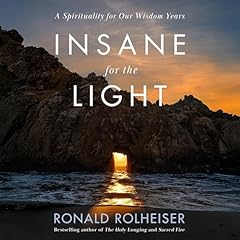
The Not-Yet God
Carl Jung, Teilhard de Chardin, and the Relational Whole
No se pudo agregar al carrito
Add to Cart failed.
Error al Agregar a Lista de Deseos.
Error al eliminar de la lista de deseos.
Error al añadir a tu biblioteca
Error al seguir el podcast
Error al dejar de seguir el podcast
Obtén 3 meses por US$0.99 al mes
 Exclusivo para miembros Prime: ¿Nuevo en Audible? Obtén 2 audiolibros gratis con tu prueba.
Exclusivo para miembros Prime: ¿Nuevo en Audible? Obtén 2 audiolibros gratis con tu prueba.
Compra ahora por $21.30
-
Narrado por:
-
Joel Richards
-
De:
-
Ilia Delio
We are a species between axial periods. Thus, our religious myths are struggling to find new connections in a global, ecological order. Delio proposes the new myth of relational holism; that is, the search for a new connection to divinity in an age of quantum physics, evolution, and pluralism.
The idea of relational holism is one that is rooted in the God-world relationship, beginning with the Book of Genesis, but finds its real meaning in quantum physics and the renewed relationship between mind and matter. Our story, therefore, will traverse across the fields of science, scripture, theology, history, culture and psychology. Our guides for a new myth of relational holism are the psychoanalyst Carl Jung, and the Jesuit scientist-theologian Pierre Teilhard de Chardin. The complex human can no longer be simplified to one view or another: one must see the whole of our existence or one does not see at all.
This audiobook is masterfully read by Joel Richards, with audio engineering by Sam Platt. It was produced and published by Echo Point Books & Media, LLC an independent bookseller in Brattleboro, Vermont.
©2025 Ilia Delio (P)2025 Echo Point Books & Media, LLCLos oyentes también disfrutaron:




















Las personas que vieron esto también vieron:










I came to understand meaning through the lens of quantum physics, Carl Jung’s exploration of the unconscious, and the image of energy as light. What religions often name as “God,” I now see as Light—experienced and described differently by various traditions, yet pointing toward the same vast, relational reality. This gives me a new way of interpreting the Holy Bible personally, and through the understanding of quantum physics and cosmic wholeness, I can see scripture not as rigid dogma but as a living symbol of our evolving connection to the divine.
Delio’s synthesis helped me recognize that cosmic wholeness is not an abstract idea but a way of perceiving reality itself: all creation woven together in a dynamic web of energy, relationship, and becoming. Through Teilhard’s vision of evolution as a spiritual process, I can understand the Bible’s stories as reflections of this greater unfolding, pointing us toward deeper unity with one another and with the cosmos itself. Jung’s insights into archetypes and the unconscious illuminate how these stories live inside us as symbols of transformation, while quantum physics reveals the mystery of interconnectedness that undergirds it all. Seen through this lens, the Bible becomes both timeless and alive—an expression of humanity’s search for meaning within a universe that is relational at its core.
This book helped me recognize that “God” is not a static figure but a symbol of something expansive and beyond comprehension. It opened my eyes to why religion is so deeply rooted in humanity—why it continues to shape culture, inspire devotion, and reveal our longing for connection with something greater than ourselves.
Awakening to the Relational Whole
Se ha producido un error. Vuelve a intentarlo dentro de unos minutos.


